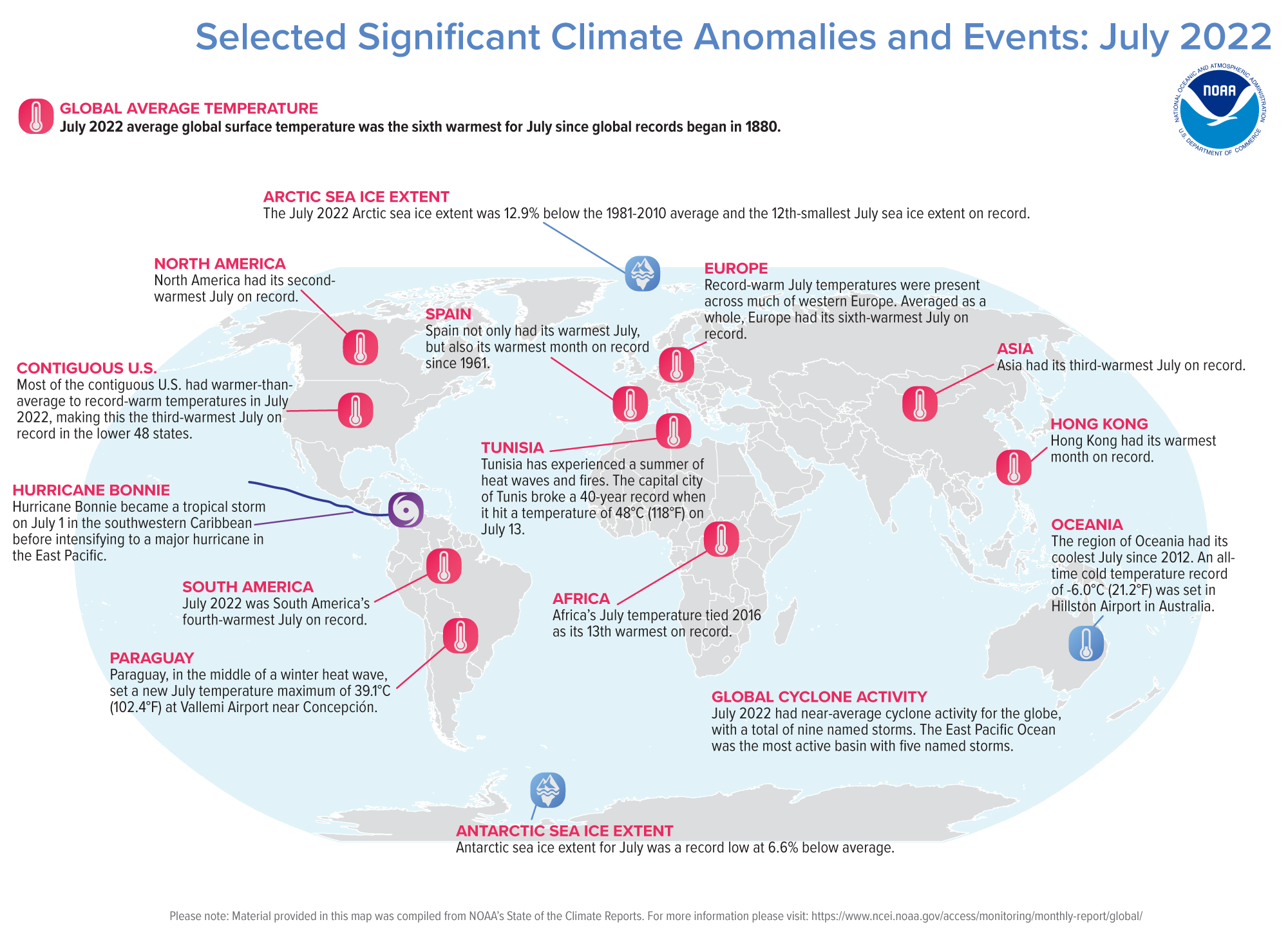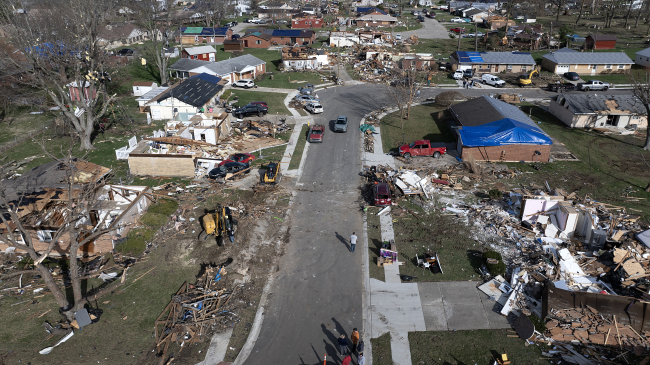Antarctic saw another month of record-low sea ice coverage

July 21, 2022: In this aerial view over Glossop, England, the bed of the Woodhead reservoir can be seen as summer water levels dropped due to demand for drinking water, record temperatures and reduced rainfall. The United Kingdom saw its 7th-hottest July on record with 46 weather stations setting new all-time maximum temperature records. Europe saw its 6th-hottest July; in contrast, Asia experienced its 3rd hottest on record. (Image credit: Christopher Furlong/Getty Images)
July 2022 was the world’s sixth-hottest July on record, according to NOAA’s National Centers for Environmental Information.
Last month also saw Earth’s sixth-hottest year to date on record as Antarctic sea ice coverage plunged to a record low for a second consecutive month.
Here’s a closer look into NOAA’s latest monthly global climate report:
Climate by the numbers
July 2022
The July 2022 land and ocean-surface temperature for the globe was 1.57 degrees F (0.87 of a degree C) above the 20th-century average of 60.4 degrees F (15.8 degrees C). This made it the sixth-hottest July in the 143-year global climate record.
July marked the 46th-consecutive July and the 451st-consecutive month with temperatures above the 20th-century average. The five warmest Julys on record have all occurred since 2016.
Regionally, July 2022 was among the top-10 warmest Julys on record for several continents. North America saw its second-hottest July on record, Asia had its third hottest, South America had its fourth hottest and Europe had its sixth hottest.
Year to date | January through July 2022
The average global land and ocean-surface temperature was the sixth-warmest year to date on record, at 1.55 degrees F (0.86 of a degree C) above average. Asia had its second-hottest such YTD on record with Europe seeing its fifth hottest. Africa, North America and South America all had an above-average YTD, though it did not rank among their top-10 warmest on record.
According to NCEI’s Global Annual Temperature Rankings Outlook, there is a greater than 99% chance 2022 will rank among the 10-warmest years on record but an 11% chance the year will rank among the top five.

More notable climate events last month
- Antarctic sea ice hit another record low: Globally, July 2022 brought the third-lowest July sea ice coverage (extent) on record. Only July 2019 and 2020 had smaller sea ice extents. Antarctica had a record-low July sea ice coverage for the second month in a row at 5.75 million square miles -- about 409,000 square miles below average -- according to an analysis by the National Snow and Ice Data Center offsite link. Meanwhile, Arctic sea ice extent in July was 471,000 square miles below the 1981-2010 average and the 12th-smallest July extent in the 44-year record, roughly the size of South Africa.
- Tropics were near average: July saw nine named storms, which is near-normal activity for July. Five storms reached tropical cyclone strength (74 mph or higher), and two (Hurricanes Bonnie and Darby) reached major tropical cyclone strength (111 mph or higher). The North Atlantic saw two tropical storms in July, also near normal. One storm, Bonnie, became a tropical storm on July 1 in the southwestern Caribbean before intensifying to a major hurricane in the Eastern Pacific. The Eastern Pacific, which is having an above-normal hurricane season so far, experienced five named storms, including four hurricanes, in July.
More > Access NOAA’s full climate report, and download images from the NCEI website.



